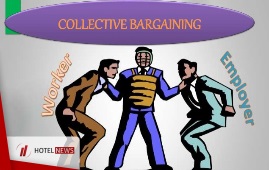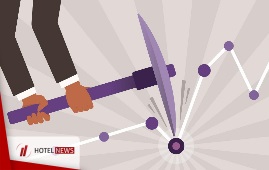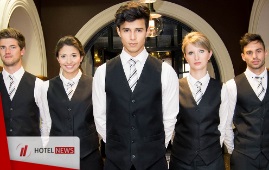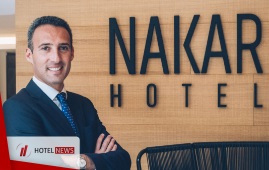You can follow up and study the basic and advanced training in the field of hospitality industry management.

The process of bipartite negotiations between parties (hospitality managers and employees) who bargain directly with one another, usually unaided by either a mediator or industrial tribunal. In some countries collective bargaining can occur with direct legislative support and intervention where industrial legislation provides procedures for bargaining such recognizing the role of bargaining agents (trade unions), allowing either party to take industrial action during a ‘protected’ bargaining period (protected from common law damages under tort) and an obligation by the parties to bargain in ‘good’ faith by attending meetings, providing information, and negotiating the agenda in good faith.
Create: Dec 17, 2019 Edit: Dec 21, 2019
An organization structure where elements of a system are united and consolidated under a single center. This type of organization can be applied to computer systems, networks, employees, accounting operations, and business facilities, as well. Centralization arose in the 1980s, when computers became able to establish better control in organization departments. The advantages of centralization are: increased organization of a system, cost reduction due to standardization of equipment and procedures, and increased efficiency. The downside is inflexibility and slow implementation of structural changes. Hotel reservation systems are sometimes made for smaller individual hotels, while for hotel chains they have centralized reservation facilities. When several reservation systems should be integrated, their infrastructure could be organized according to the decentralization principles.
Create: Oct 22, 2019 Edit: Oct 23, 2019
A computerized file-keeping system, and the database itself is a repository of computerized data files. In the context of database management, data are stored and organized by fields and records A field (sometimes known as an attribute) is the single unit of information, such as the surname of a hotel employee. A record (also called a tuple) is a collection of related fields. Furthermore, a file (also known as a table) has multiple records that are pertained to a specific topic. Lastly, a database comprises all related files. In hospitality, databases support most business functions and applications. An advantage of database systems application to the hospitality industry is the personalization of products and services. The selective capability of a database system makes it easy for the hospitality practitioners to maintain a direct contact with customers.
Create: Oct 22, 2019 Edit: Oct 23, 2019
A centralized office of a company that answers incoming telephone calls from customers or that makes outgoing telephone calls to customers (telemarketing, sometimes referred as a Central Reservation Office (CRO). In its simplest form, it consists of a telephone and a reservation agent. Generally, call centers have the ability to place multiple reservations at the same time through central reservation systems (CRS), usually through an 800 number. Hotel companies may have call centers that serve many different properties within the corporation. Airlines and car rental companies usually have one centralized call center in each of the different countries where they operate, all interlinked through the CRS. Centralized call centers have the advantage of providing consistent service and decreasing the company’s costs, such as management and training. Multibranded companies, however, may have different call centers and, in some cases, different CRSs within their system, mostly due to mergers and acquisitions.
Create: Aug 29, 2019 Edit: Oct 23, 2019
A process that employs a combination of machine learning, statistical analysis, modeling techniques, and information technology to discover hidden facts, previously unknown patterns of behavior, and trends. Companies can use this knowledge to make business decisions in their marketing, sales, customer service, production, credit, and finance activities more quickly more accurately, and with higher confidence. As a marketing tool, data mining is often used to study customers and their purchasing behavior in order to look for patterns that describe the behaviors and permit businesses to perform market segmentation in new ways. Through intelligent segmentation and response analysis data mining has helped companies to retain customers and to become more relevant, by designing products and services that meet the needs of customer ‘segments’ and to communicate with them more effectively. Moreover, data mining assists the improvement of customer relationships through profiling, profitability, value, and loyalty analysis.,
Create: Aug 29, 2019 Edit: Oct 23, 2019
Career planning and development The lifelong process of working out a synthesis between individual interests and the opportunities (or limitations) present in the external work related environment, so that both individual and environmental objectives are fulfilled. It is a continual process that affects both the individual and the hospitality organization. For the individual in the hospitality industry it involves career planning and career outcomes and encompasses such issues as job change, mobility, and stages of a career. Whilst for the hospitality organization it is concerned with and influences human resource planning. The demise of the traditional hospitality organizational career, with its vertical progression, has affected an individual’s career development with the trend now being to develop core skills, increase marketability, and develop employability. A gradual shift has been seen from the traditional skill base (such as food and beverage) to more managerial and business skills together with the need for international experience and language skills.
Create: Jun 12, 2019 Edit: Jun 12, 2019
Action learning The process whereby individuals learn skills through involvement in a team focusing on organization-specific problems. This is achieved through the use of questioning, analysis, and Action learning The process whereby individuals learn skills through involvement in a team focusing on organization-specific problems. This is achieved through the use of questioning, analysis, and problem-solving techniques. As the individuals using this process are often working out with their normal area there is the added advantage of learning about other processes or areas of the business whilst developing interpersonal skills and, of course, improving organizational effectiveness. For example, a member of the front office team in a hotel may work in an action group with individuals from the sales and reservations teams to consider how to improve communication between the departments. The front office team member will learn about the other departments and assist in the creation of a solution for more effective communication; thus learning has taken place.
Create: Jun 12, 2019 Edit: Jun 12, 2019
Account settlement A term used to describe a situation that occurs when a guest account folio is brought to a zero balance (i.e. when the guest pays their account). Guests can pay their account in numerous ways namely: by cash, by credit card, by direct billing arrangement (normally arranged before the guest stay), or a combination of the above.
Create: May 6, 2019 Edit: Jun 12, 2019
Back office systems The IT (Information Technology) business applications that support the internal business functions of hospitality organizations. Like the customer-facing (front office) ones, these applications are instrumental in the fulfillment of the hospitality or tourism enterprise’s mission – from product to service and everything in between. They are usually software packages such as Business Performance Management Tools, Enterprise Resource Planning, Supply Chain Management and Sourcing, or individual applications such as inventory management, purchasing or e-procurement, menu and recipe management (for catering operations), human resources management (e-recruitment, e-training, employee scheduling, and payroll), energy management, preventative property maintenance, and accounting. Customer-centric strategies require back office systems to have some level of integration with front office systems (mainly the property management system (PMS) in the case of hotels and the customer relationship management (CRM) system of the enterprise) in order to provide a complete outlook on customer interactions and the connected business processes..
Create: May 6, 2019 Edit: May 7, 2019
Hands-on learning Often in the hospitality industry individuals learn by experience, practicing, and displaying certain behaviors. For example a new bartender will learn the mix of cocktail ingredients and then practice how to blend these together whilst a room attendant will practice the various steps involved in making a bed. Many companies now identify key skills for all jobs within their organization to support and target learning. Hilton (UK) for example has defined the technical and behavioral skills (TBS) required for all operations roles and designed learning experiences around these. This is known as behavioral learning and is best suited to skill development. Attitudinal development is better achieved through cognitive learning. In this process learning is stimulated by explanation and understanding of concepts and theories which will then allow the learner to adapt their attitude to a given situation.
Create: May 6, 2019 Edit: May 7, 2019
For the customer, you are the company. Attracting and keeping customers is a process that begins and ends with their employees. We must also factor in the impact that these choices have on the wearer as well. Pride in your appearance contributes to your sense of self-worth. Studies on the subject link clothing consciousness to higher self-esteem and job satisfaction. Accentuating your It is in your best interest to put effort into a “positive visual image.” We know we look appropriate and we know how to conduct our-selves in any business situation, we feel comfortable and empowered and can concentrate on the business at hand to achieve our goals.
Create: May 2, 2019 Edit: May 4, 2019
We live in a society that has been called “high tech, low touch.” Most communications are done through electronics and machines. Face to face encounters are usually brief and their effectiveness depends on how well and accurately we get our message across. We simply CANNOT afford to wait for a second positive impression. The hospitality industry is a “people business” and our encounters are brief. In the eyes of the customer, your personal appearance and the service you provide represents the image the client has of the company. How you dress and present yourself can affect your effectiveness, your profitability and , therefore, your career and the company’s success. The staff’s appearances and behavior that will encourage repeat business. The pubic buys “perceived value.” Hotel employees look trustworthy, efficient and impeccable, most guest assume that the property is equally trustworthy, efficient and impeccable, too.
Create: May 2, 2019 Edit: May 4, 2019